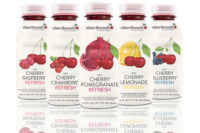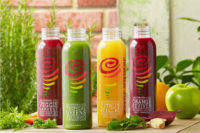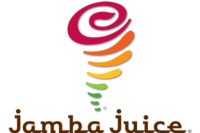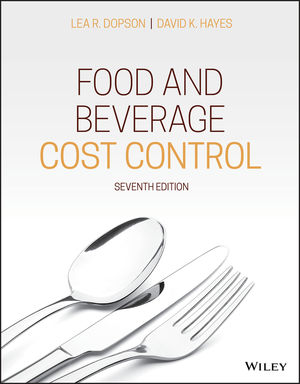Jamba Juice studies green juice segment
Survey finds consumers are concerned about taste

Jamba Juice Co., Emeryville, Calif., announced the first results of a three-part survey about freshly squeezed juice. The survey, conducted by Palo Alto, Calif.-based YouGov, polled a representative national sample of more than 2,200 Americans and revealed their views on juice and, in particular, how their perspectives on green juice vary.
Overall, the results suggest that despite the recent surge in popularity of green juice, there still is a great deal of confusion surrounding it, the company says. Many survey participants said they believe green juice is the most nutritious juice, but they are skeptical about its taste.
The following are some of the survey’s findings about consumer views of green juice:
- More than one-quarter (28 percent) of U.S. adults say they "fear the look" of green juice.
- Green represents the juice people drink least often.
- Thirty-two percent of respondents said green juice is the one they like the least.
- Only 9 percent of people like green juice best.
However, while many consumers "fear the look" of green juice, they tend to think it is among the healthiest juice options available and also is a convenient way to incorporate fruits and vegetables into their diets.
The following are some of the findings about consumers’ positive perceptions of green juice:
- Thirty-two percent of respondents think green juice is the healthiest juice.
- More than 1 in 5 Americans say they would prefer to drink beets (21 percent) and dark leafy green vegetables, such as spinach (23 percent) and kale (20 percent), in juice rather than eating them whole.
- While 89 percent of U.S. adults believe that whole fruits and vegetables are better than juice, 68 percent say drinking juice is more convenient.
"Just like we should be enjoying a wide range of all the colors of the rainbow in the food we eat, drinking colorful fruits and vegetables is an easy way to satisfy your daily requirements, too,” said Kathleen Zelman, member of the Jamba Juice Healthy Living Council, in a statement. “Juices made from ingredients like kale, spinach, beets and chia seeds are powerhouses of good nutrition and they can actually taste good. Jamba Juice's new Whole Food Nutrition smoothies and freshly squeezed juices that use unique combinations of whole foods that are delicious, easy, convenient and an excellent way to blend in more fruits and vegetables on-the-go."
In fact, the best-selling new product on Jamba Juice’s expanded smoothie and juice menu is a green variety, it says. The Kale-ribbean Breeze smoothie, which contains kale blended with mangos, passion fruit-mango juice, nonfat Greek yogurt and chia seeds, is outselling other flavors of the brand's new Whole Food Nutrition line, which launched in January, the company says.
The results of the YouGov study also highlighted a discrepancy between baby boomers' and millennials' views on juice. Millennials indexed to be more open to green juice and the broader notion of drinking vegetable juices.
The following are some of the study’s results about the differing opinions of millennials and baby boomers:
- Millennials are twice as likely as baby boomers to think that vegetables taste better in juice (39 percent vs. 18 percent).
- Millennials are twice as likely as baby boomers to prefer green juice (13 percent vs. 6 percent).
- Millennials are twice as likely as baby boomers to drink green juice most often (13 percent vs. 6 percent).
Combined, two-thirds (66 percent) of Americans believe fresh-squeezed juice is healthy, according to the survey.
"We weren't surprised when we learned that one-third of American adults, especially millennials, say they are consuming more vegetables in juice than they did 10 years ago — but the fact is, they are still not consuming enough," said Julie S. Washington, senior vice president and chief brand officer of Jamba Juice, in a statement. "According to a 2013 report published by the [U.S. Department of Agriculture] based on MyPlate serving suggestions, men, women and children are only eating one-third of the fruit (33 percent) and two-thirds of the vegetables (63 percent) they need each day. We want to help eliminate Americans' fruit and vegetable deficiency and inspire healthy living, and we promise to never sacrifice taste while doing it."
Click here to view an infographic of the survey’s results.
Looking for a reprint of this article?
From high-res PDFs to custom plaques, order your copy today!







